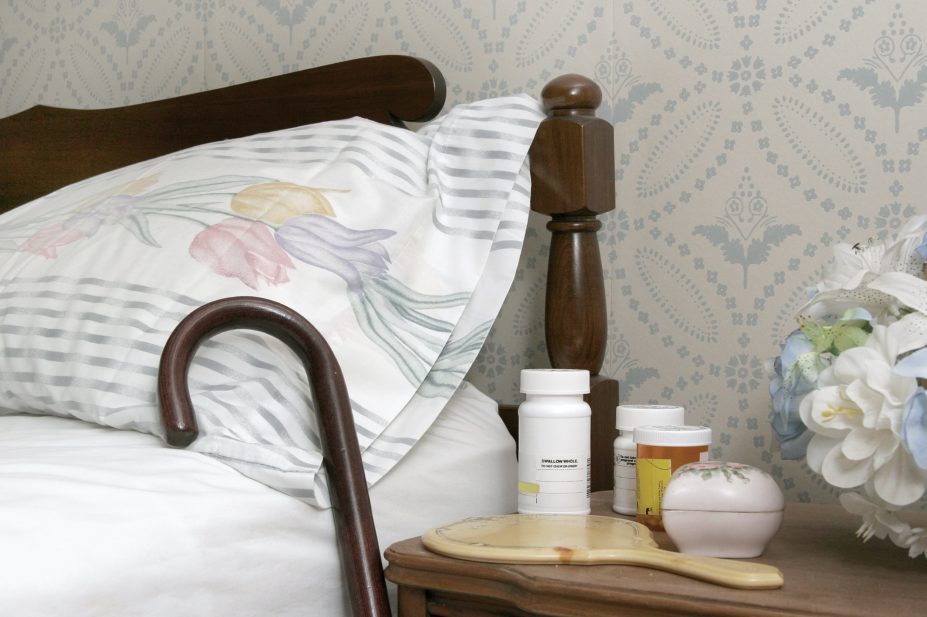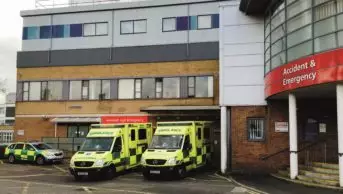
Shutterstock.com
Exclusive: At least four in ten older patients failed to receive an annual medicines use review at their GP surgery in 2019, potentially putting them at increased risk of falls or hospitalisation.
Data published by NHS Digital and analysed by The Pharmaceutical Journal suggest that only 59% (108,507) of patients identified with ‘severe frailty’ received an annual medicines review at their GP surgery in 2018/2019, leaving 74,534 patients with ‘severe frailty’ without a review.
Inappropriate prescribing is a common cause of hospitalisation in frail older people — particularly if they are taking psychoactive drugs (such as benzodiazepines), aspirin or opioid painkillers.
Regular checks on patients aged over 65 years and annual medicine reviews for those found to have ‘severe frailty’ were introduced into the GP contract in 2017 in order to “allow for targeted support from health and care services”.
NHS England says that ‘severe frailty’ means patients are “vulnerable to dramatic, sudden changes in health triggered by seemingly small events, such as a minor infection or a change in medication or environment”. However, nearly 350 GP practices did not record a single frailty assessment in 2018/2019, according to the analysis.
This means that potentially tens of thousands of severely frail older people are likely to be missing out on vital medicines checks, even though studies show that this group of patients are a significant cause of NHS spend and even a short hospital admission can increase the risk of death.
Some 14% of registered patients aged 65 years or over were assessed for frailty in 2018/2019, with 26% being assessed in 2017/2018.
“This seems like a very low number [receiving medication reviews],” said Henry Woodford, chair of the British Geriatric Society’s Medicine Optimisation Special Interest Group and a hospital-based geriatrician.
“Many of these patients will be in the last year of their life and it would seem entirely appropriate to do a medication review,” he added.
David Reeves, senior researcher in primary care at the University of Manchester, said interviews his team has conducted with GP practices show that funding is a major problem. “GPs are concerned about identifying large amounts of need that they are unable to meet because of a lack of available local resources,” he said.
“This has resulted in quite a lot of practices paying only lip service to the frailty initiative, which is one reason why the medication review rate is low.”
However, Richard Vautrey, GP committee chair at the British Medical Association, said that these figures may say more about coding and recording: “A clinician will review the medication … when they see patients or a prescription is done, but [they] may not necessarily code this.”
A spokesperson for NHS England and NHS Improvement said they would be addressing the lack of medicines reviews in this group of patients in the new GP contract from April 2020.
He said: “The importance of medication reviews will be reinforced through the forthcoming primary care network (PCN) service specification on structured medication review, which … will start in 2020. This enhanced requirement is being supported through the deployment of thousands of clinical pharmacists into PCNs as part our wider proposals for PCNs to recruit over 20,000 additional staff.”


